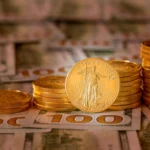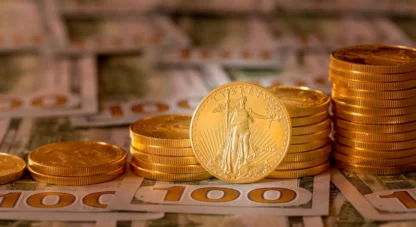Yeats was not much of a theologian, but as a wordsmith he was beyond superb. “Things fall apart; the centre cannot hold;/Mere anarchy is loosed upon the world/… The best lack all conviction, while the worst/Are full of passionate intensity.”
The poet penned his verse in 1919, but you might be forgiven for thinking he was peering across a time warp to 2023. The times are unnerving for many, terrifying for some, portentous for all. Our world is changing, and the changes are legion—and big. Really, really big.
Most of us sense the change. Some few of us struggle to keep a finger on the pulse of a world gone mad, struggling against its fetters, gnashing its teeth and heading to a future unknown and ominous. The pulse seems erratic, but it’s detectable. The world is alive, but slipping from its past. Forgetting its former ways. Replacing certainty with questions.
It’s never been more important to know what’s really going on. Proceeding on the basis of faulty intel has always been a recipe for losing a battle—including the battle for survival in a changing world. So choose your advisors carefully.
The major media have proved conclusively that they serve a master other than their viewers, listeners, or readers over the past several years. Heed them only with the greatest of caution. Choose instead purveyors of careful research and even more careful advice. There are several—not as many as might be hoped for, but several nonetheless—among which we make bold to offer the below as exemplary. Check out their work, and see if you agree.
Key Takeaways:
- What happened to bonds?
- The experts fiddle while Rome burns
- The new rules are about to penalize noncompliance
- The world flirts with, but doesn’t commit to, the solution to its problem
The McAlvany Weekly Commentary: Bonds are a very big story this week, and hosts David and Kevin look into the matter. Treasurys in particular are typically a safe haven play, and when things get bad in the world, people tend to buy them in order to safeguard their money. Initially, that scenario seemed to be playing out following the horrific events in Israel. “And then towards the end of the week, there is this question: is there such a thing as too much supply in a world of limitless credit creation? And it would seem that the global bond market is concerned, not just with Treasurys—again, this is global, but with excess modern money creation.” Given that the entire world runs on fiat money, this is a potentially earth shaking development. Changing from oil to renewable energy has proved to be a huge and difficult transition for the world. How much more difficult will be a change from the fuel for the entirety of modern life—endless sums of fiat money—to… Well, to what?
Credit Bubble Bulletin: Doug also focuses on the bond rout, providing extensive detail, as is his wont, from a wide variety of sources. He gives the numbers for bond yield increases in developed countries, as well as dollar-denominated bond impacts in emerging markets. The implications are immense. “Everything points to destabilizing de-risking/deleveraging. Yet, most U.S.-based analysts remain narrowly fixated on Fed policy, economic fundamentals, and corporate profits. ‘Is the Fed done or one more hike?’ ‘Soft or no landing?’ It was as if the conventional framework this week shriveled into triviality. There is today momentous geopolitical upheaval unfolding before our eyes, with broadly negative ramifications for securities markets and financial assets – not to mention stability more generally.”
Hard Asset Insights: Morgan’s always-insightful analysis simply outdoes itself this week. People—including investors—do not always adapt their thoughts and habits to new developments. They play new games by old rules, and suffer for it. “HAI has long expected that the unsustainable policy, economic, and market dynamics of past decades would, at some point, culminate in a generational turning point. Regardless of which day, week, or month punctuates ‘the moment,’ we appear incredibly close to a broad-based recognition that…a new era, complete with new rules, has commenced.” Parsing a Financial Times article that makes some trenchant observations about the gravity of the situation, but then concludes essentially that the government’s got this, Morgan notes, “Consider the implications of this statement. It is the epitome of analysis based on the old rules.” Given the forward-looking nature of the McAlvany analysts’ work, perhaps you’ll want to study it before the new rules rob you of your life’s savings.
Golden Rule Radio: Tory and Rob hold down the fort this week, and continue their analysis of the road we’re on as both a nation and a world hooked on debt. They focus on what they call “the dollar doom loop,” but note that all currencies face the same obstacles. Essentially, in a situation in which we’re addicted to cheap money that we borrow from the future, if we need to spend more, we’ll be getting what we borrow at higher and higher interest rates. Carried to its logical conclusion, at some point everything we’re able to borrow would be committed to paying back existing debt. No new spending would be possible. Debt becomes the monster that ate the world. Having at least glimpsed this future, the world appears to have turned to gold and silver instead over the past week or so. But the hosts do not oversimplify this development. They list and consider a host of developments worldwide as they examine the choices individuals must make going forward.















